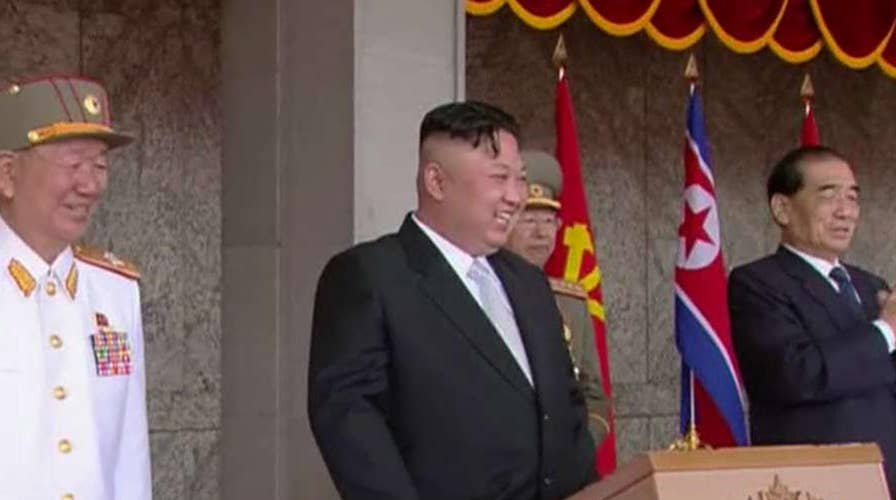North Korea’s nuclear program has long triggered condemnation – including the U.N. Security Council’s recent decision to apply some of the toughest sanctions in history – but is something far more lethal lurking in the Hermit Kingdom’s arsenal?
"They have a large stockpile of chemical weapons, but the one that gets the least attention, and that I worry most about, is their biological weapons program," said Andrew Weber, the former U.S. Assistant Secretary of Defense for Nuclear Chemical and Biological Defense Programs from 2009-2014.
When it comes to biological weapons, Weber said, just a tiny amount can bring incredibly lethal results. "Ounces or pounds would be enough. You can have millions of lethal doses of anthrax in a several-pound quantity... With smallpox, maybe just a few grams."
One of the biggest concerns when it comes to chemical or biological warfare - a concern that Weber and the White House seem to share - is the fact that these incredibly lethal attacks can easily be "cloaked in deniability," and difficult to trace back to the perpetrator. Weber pointed out that “it takes just one or two people to covertly deliver a strategic biological weapons attack.”
North Korea has been accused of using chemical weapons in an apparent assassination earlier this year, one that unfolded beyond its borders. Kim Jong Nam, the half-brother of North Korean leader Kim Jong Un, was killed with the use of the nerve agent VX in the Kuala Lumpur International Airport last February 13.
Adding to the difficulty in tracking the use of weapons like these, Weber said, is the fact that it's usually too late when people realize they've been exposed. Weber added that "to release anthrax into the atmosphere, you'd likely go undetected and it would be a week or so before people start displaying symptoms.”
During the 2001 anthrax attacks in the U.S., Weber noted that people were mailed envelopes filled with the deadly substance - along with a letter telling them that they had been infected, and should seek medical attention. Weber said those warning letters are what allowed the government to quickly distribute antibiotics to thousands of Americans, likely saving lives in the process. Without them, the outcome could have been very different.
"If you don't know about an attack until people start showing up sick, it’s very difficult to treat the inhalation of anthrax," Weber said. He added, "if they can launch a VX attack in Kuala Lumpur, they can launch an anthrax attack in Los Angeles.”
The White House seemed to confirm the North's chemical and biological capabilities, writing in its newly released National Security Strategy that "North Korea — a country that starves its own people — has spent hundreds of millions of dollars on nuclear, chemical, and biological weapons that could threaten our homeland.
For his part, Kim Jong Un, said the United Nations committed "an act of war" with its new round of nuclear-related sanctions.
North Korea's most recent test-launch of a long-range missile, one that they claimed could reach anywhere on the U.S. mainland, inspired the U.N. Security Council's unanimous approval of what are considered some of the toughest sanctions in history on December 22.
President Trump suggested on Twitter that the vote indicates “The World wants Peace, not Death!”
The text of the new UN resolution suggests that the "proliferation of nuclear, chemical and biological weapons, as well as their means of delivery, constitutes a threat to international peace and security."
In a statement, the North Korean government said it would “categorically reject the ‘resolution,’” which it described “as a grave infringement upon the sovereignty of our Republic, [and] an act of war violating peace and stability in the Korean peninsula and the region."
A spokesperson for the foreign ministry of China, one of the rogue regime's few allies, seemed to call for "restraint" from both the international community and North Korea. In a statement, China called on nations to "make positive and constructive efforts to de-escalate tensions on the (Korean) Peninsula," while adding that the resolution was designed with the intention of "not inflicting adverse humanitarian impact" on North Koreans.









































